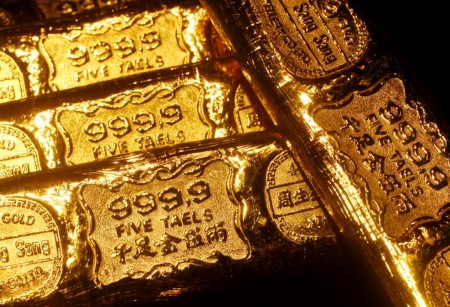




January Economic Update: Growth slows, prices rise
 DOWNLOAD
DOWNLOAD

Inflation Update: Up, up, and away?
 DOWNLOAD
DOWNLOAD

Quarterly Economic Growth Release: Growth takes on a slower pace
 DOWNLOAD
DOWNLOAD


Gold dips as dollar ticks up on China COVID risks

Nov 28 (Reuters) – Gold prices slipped on Monday, as investors preferred the safe-haven dollar amid protests in several Chinese cities over the country’s strict COVID-19 restrictions.
Spot gold was down 0.3% at USD 1,750.20 per ounce, as of 0745 GMT. US gold futures fell 0.2% to USD 1,750.10.
The dollar index was up 0.2%, making the greenback-priced bullion more expensive for buyers holding other currencies.
“Gold prices have been tracking the US dollar’s moves closely, and increased uncertainty from the growing unrest in China seems to be underpinning the dollar this morning,” said IG Market strategist Yeap Jun Rong.
Hundreds of demonstrators and police clashed in Shanghai on Sunday night as protests over China’s stringent COVID restrictions flared for a third day and spread to several cities in the wake of a deadly fire in the country’s far west.
Meanwhile, China on Monday reported a fifth straight daily record of new local coronavirus cases.
People may be shifting to defensive assets considering the COVID situation in China, but the dollar’s gains are currently overshadowing gold’s safe-haven status, Yeap said.
Next on investor radar is Federal Reserve Chair Jerome Powell’s Wednesday speech on the US economy and labour market for clues on the monetary policy outlook.
A majority of market participants are pricing in a 50 basis-point increase at the Fed’s December meeting after minutes of the last policy meeting signalled a slower pace of hikes.
Higher interest rates increase the opportunity cost of holding the non-yielding metal.
The ADP National Employment report and the US Labor Department’s nonfarm payrolls data due later this week will also be scanned for their likely influence on the Fed’s rate-hike strategy.
Spot gold may revisit its Nov. 23 low of USD 1,727.50 per ounce, according to Reuters technical analyst Wang Tao.
Silver slipped 1.5% to USD 21.27, platinum rose 0.1% to USD 981.77 and palladium lost 0.1% to USD 1,851.56.
(Reporting by Ashitha Shivaprasad in Bengaluru; Editing by Subhranshu Sahu and Uttaresh.V)
This article originally appeared on reuters.com





 By Reuters
By Reuters